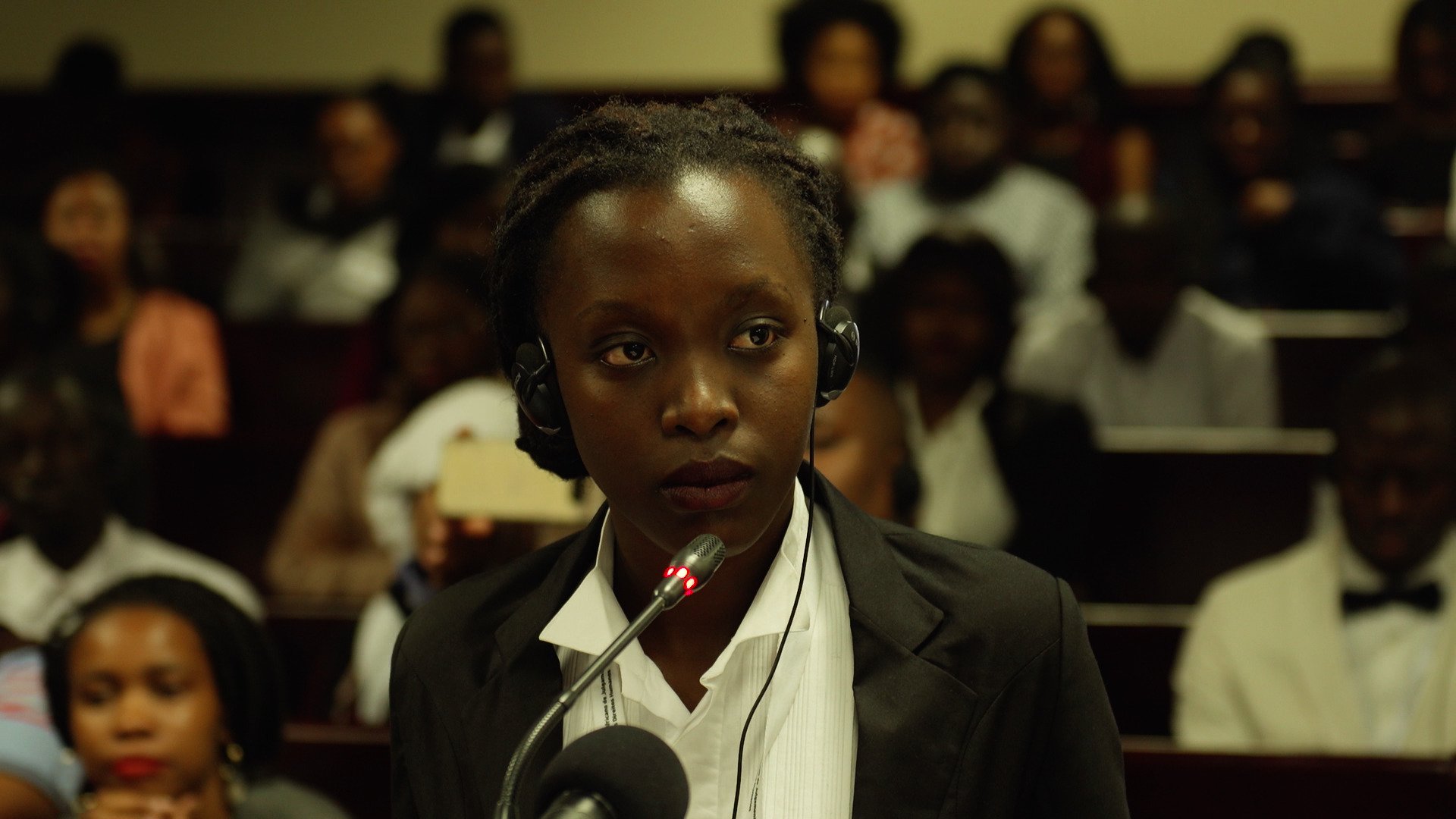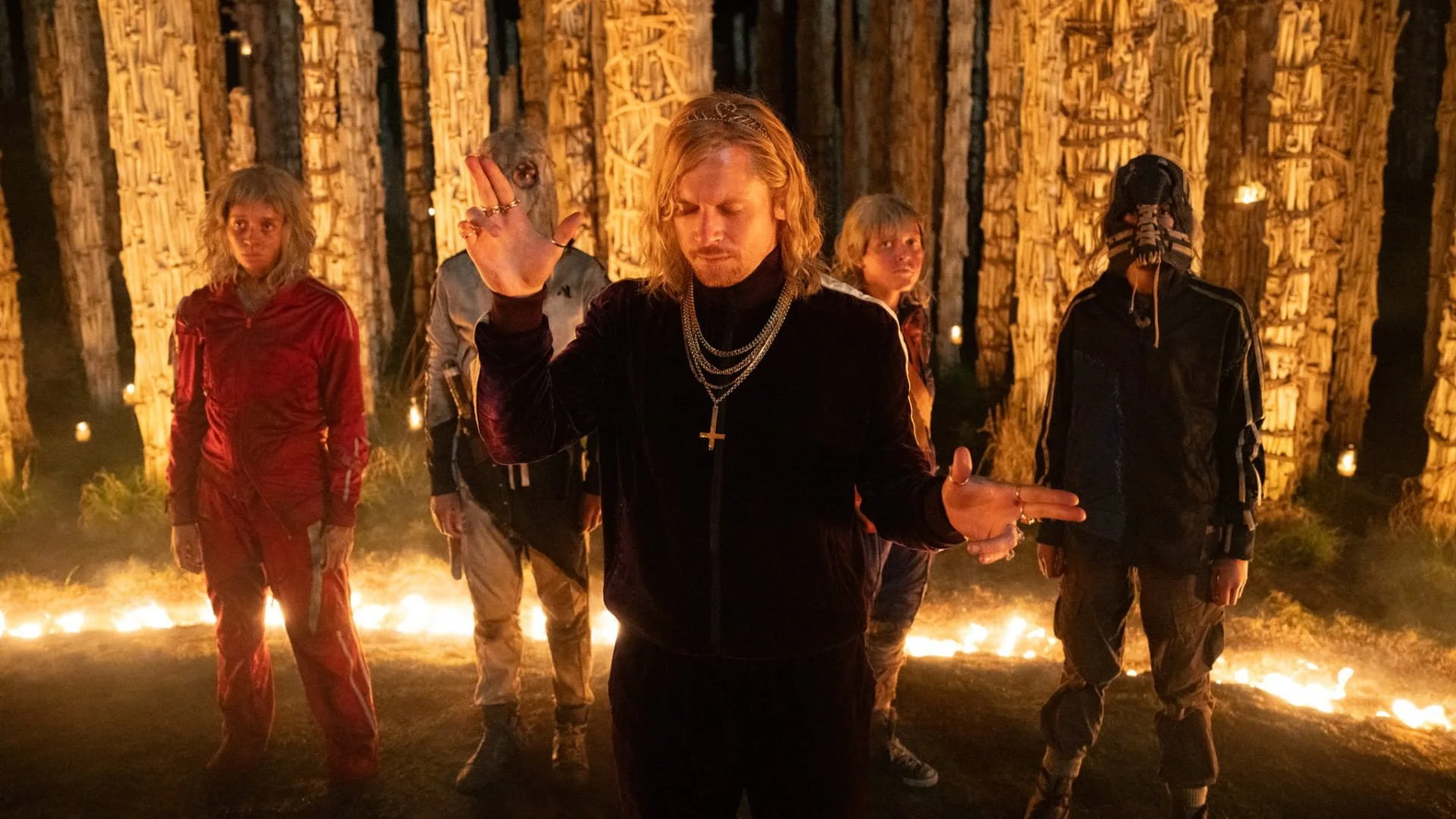Hot Docs 2022: African Moot
The question of narrative balance is always at issue in a documentary film about a competition, especially when dealing with politically contentious subject matter. It’s too easy for a filmmaker to tilt the balance in favour of their favourite subjects and rhetorical points, exposing their own personal and political sympathies in the process. Luckily, Shameela Seedat’s African Moot provides exceptional balance in its coverage of the law students taking part in the annual African Human Rights Moot Court Competition. The film offers an insightful view of the human rights legal process, using its seemingly low stakes competition as a microcosm for the larger legal world. It’s a film of intriguing characters and surprising tension that also shows how personality and rhetorical skill helps lawyers argue legal cases about human rights.
African Moot follows teams of two law students from Uganda, Kenya, South Africa, and Egypt as they travel to Gaborone, Botswana to take part in the annual competition. The year’s focus is on the rights of refugees on the African continent and presents a fictional case of refugees fleeing from political violence following an election in a hypothetical nation. Each team of students is required to argue on behalf of both sides: the national government that denies the refugee status of the migrants, as well as the migrants themselves seeking asylum from political violence.
The students are told to focus particularly on the abuses facing children, journalists and political activists, and members of the LGBT community. As such, the students have obvious sympathies on one side of the hypothetical debate over the other, but being able to argue accurately and passionately for positions one personally disagrees with is a key part of being a lawyer. Seedat makes this tension between personal beliefs and professional obligation a key focus in the film. She captures intimate moments where the students express doubts and frustrations, as well as try to cite the most accurate court cases and precedents from across the African continent. At one point, we see a gregarious law student from Cairo mention that arguing for things you don’t believe is “what lawyers do”—his mixture of exasperation and amusement at the defeatist notion captures the personal struggles that await any human rights lawyers. It’s an example of the kind of intimate, spontaneous honesty that Seedat and her crew are able to capture in documenting the competition.
Sometimes, her camera gets a little too personal as students ask for privacy or seek refuge in their host dormitories. One such moment comes after a respected Nigerian professor and lawyer makes disparaging comments about fighting for LGBT rights during an evening discussion, saying that LGBT rights are contrary to pan-African values. This causes one of the students, who is discrete about his sexual orientation, to return to the dorimtory in dejection. He spends the next few days contemplating the implications of the professor’s comments and wondering whether there’s a place for him in a pan-African world.
There are a variety of political and personal tensions such as this one at play in the competition. The conference is meant to capture the pan-African experience and prepare the next generation of human rights lawyers to work together for a better Africa, but it also exposes the divisions between religious groups, national identities, and, most explicitly, the young and the old. These differing perspectives are expressed in the unique ways that each lawyer argues for the competitive positions: some favour concrete, punchy rhetoric devoid of personality, others are overly differential to the judges and adjudicators, and others allow a bit too much of their own passions to overwhelm their legal argument. There are insights into the legal process here, especially in showing the importance of preparation and rehearsal, but Seedat doesn’t focus much on the specifics of the law. This isn’t a movie for law nerds. Rather, it’s a movie about and for inquisitive people, who want to learn about how a new generation approaches the challenges of their profession and how they express their own personalities through work and play.
You can tell the film was made on a microbudget—the camerawork is functional and tries to be as invisible as possible, but much of the editing works around the clear limitations in terms of footage and equipment. But the personal approach becomes a strength rather than a drawback, as the camera itself becomes another one of the participants in this competition, privy to private conversations, joining others in celebration, offering sympathy in others’ failures and frustrations, and capturing the ways that the competitors are both rivals and future colleagues.
It should be said that African Moot is also entertaining to watch. It generates a considerable amount of dramatic tension and makes us care to find out which teams move onto the finals and which individual law students are rewarded for their oratory skills. That Seedat manages to make us invested in the outcome without forcing us to root for one individual or team over another is more evidence in the film’s favour.
It’s too reductive to simply say that African Moot is the law-focused version of Boys State, but it shares many of that 2020 documentary’s pleasures and dramatic beats. Like that popular 2020 documentary, African Moot offers a small window into a seemingly-inconsequential competition that sheds light on the challenges and complexities of a larger professional world with ramifications for our political order. It’s the kind of film that allows you to come to know its subjects as people while also helping us to better understand why change is never as easy as it looks.
7 out of 10
African Moot (2020, South Africa/Finland)
Directed by Shameela Seedat.



This mockumentary starring Matt Johnson and Jay McCarrol is a complex metafiction farce and a loving portrait of friendship and Toronto.